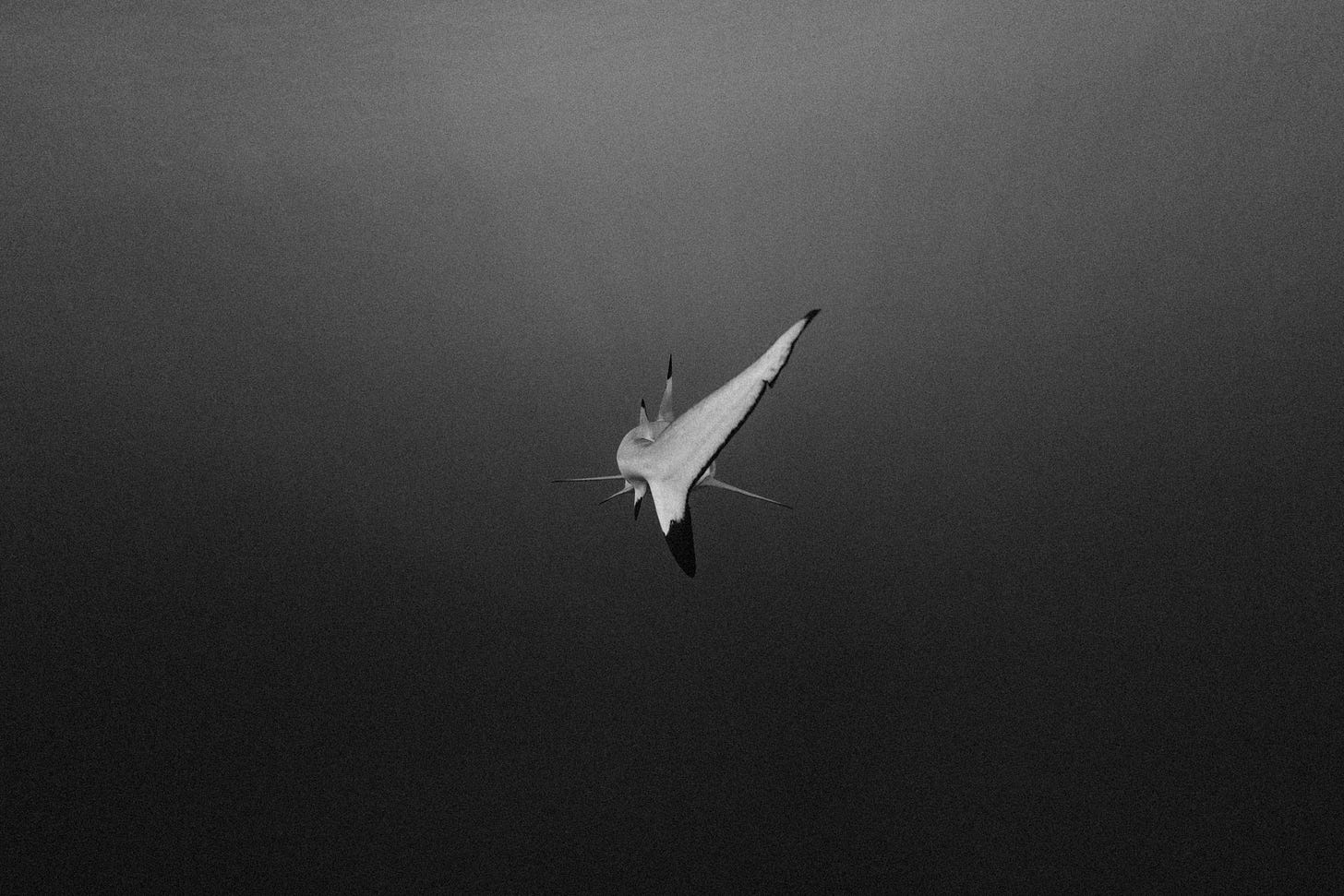Ancient Yangtze porpoise poetry, Chilean ship collisions, and a minke surprise
Big Blue Bulletin #51
Welcome to the latest edition of the Big Blue Bulletin – things have changed just a little bit around here as featured stories will now focus on whales, dolphins, and porpoises, with a little bit of commentary from me thrown in as well. Still, you can expect good news, bad news, and a cute creature in your inbox every Friday.
Let’s dive in 🐬
Ocean news
💡 Thought piece -
🧠 Our responsibility for cetacean conservation grows with proof of their intelligence
In a new commentary for Mongabay, writer Avery Ancell argues that the search for intelligent life shouldn’t start in space—it should start in the ocean.
Thanks to new tech and decades of research, we now know cetaceans live socially complex lives that involve elaborate communication and unique cultures—traits once thought to be uniquely human.
“If people can understand what they have in common with an animal that is seemingly so alien on the surface,” Ancell writes, “it would allow for a greater extension of empathy.”
🚢 ‘It’s like putting a whale in a blender’: the rise of deadly ship collisions in Chile
Chile records more fatal whale collisions than anywhere else on Earth, with an average of five confirmed deaths a year. But researchers warn that these figures likely represent just 10% of the true toll as most struck whales never wash ashore and instead sink, drift, or vanish altogether, meaning the majority of deaths go unrecorded.
Patricio Ortiz, a former fisher turned whale-watching captain, remembers the first time he saw a wounded blue whale glide beneath his boat, a chunk missing from its dorsal fin. “Nothing can be done when they’re up against those floating monsters,” he said. He’s worked in the waters off Chañaral de Aceituno since 1978 and has watched shipping traffic steadily increase over time.
The collision hotspots are the same places that whales migrate, feed, and raise their calves, but unlike smaller vessels, cargo ships often don’t even realise when a strike occurs, and simply sail on.
🎣 Tens of thousands of whales and dolphins die in European waters each year in fishing nets
A new report from the Environmental Investigation Agency has revealed that tens of thousands of whales, dolphins and porpoises are dying every year in European waters after becoming entangled in fishing gear.
At least 15 populations are affected by bycatch — including eight of 13 known populations of harbour porpoise. More than 35,000 porpoises are killed annually, many in static gillnets, while the common dolphin bycatch limit was exceeded sixfold in 2020.
Some populations, including harbour porpoises in the Baltic Proper, Belt Sea and Iberian Peninsula, are now teetering on the edge of extinction. Campaigners are calling for the urgent re-enforcement of existing laws to stop more deaths.
This is by no means a new threat but one we’re still failing to fix.
🇨🇳 Ancient Chinese poems reveal the decline of a critically endangered porpoise over 1,400 years
Scientists have turned to an unlikely source to understand the past range of the Yangtze finless porpoise - Chinese poetry. In a new study, researchers analysed more than 700 poems dating as far back as the Tang dynasty (618–907 CE) and found that the critically endangered porpoise has lost 65% of its range over the last 1,400 years.
The Yangtze finless porpoise is the only known freshwater porpoise in the world, with fewer than 1,800 individuals left. Today, it occupies just a fraction of its historical habitat, with a 91% decline in previously occupied river tributaries and lakes.
The team behind the study says this is a powerful example of how art and science can work together, or as co-author Zhigang Mei put it: “Chinese poetry, this ancient art form, can be a serious scientific tool.”
🚣♂️ Galway guide stops tour of bay to rescue beached whale calf
A wildlife tour in Roundstone Bay, Galway, turned into an unexpected rescue mission when the guide spotted something unusual shining on the shore. At first, he thought it was a dead dolphin but on closer inspection, he realised it was a live minke whale calf, stranded and struggling on the rocks.
Quickly tying up his boat, Damien O’Malley and his tour guests sprang into action, pouring buckets of seawater over the young whale to keep it cool and wet as the tide slowly came in. Damien then carefully used his boat to tow the animal off the rocks and out into open water. As soon as the calf had space to move freely again, it seemed to regain its strength and swam off into open water.
A brilliant reminder that you never know what a day on the water might bring.
Have a great weekend! 📸
Cover image by Francis Pérez/The Guardian.





It's increasingly difficult to read these; I keep wondering if/when we'll get to a point where all these animals are spoken of in the past tense. It's hard to look at the numbers and see any hope of recovery.